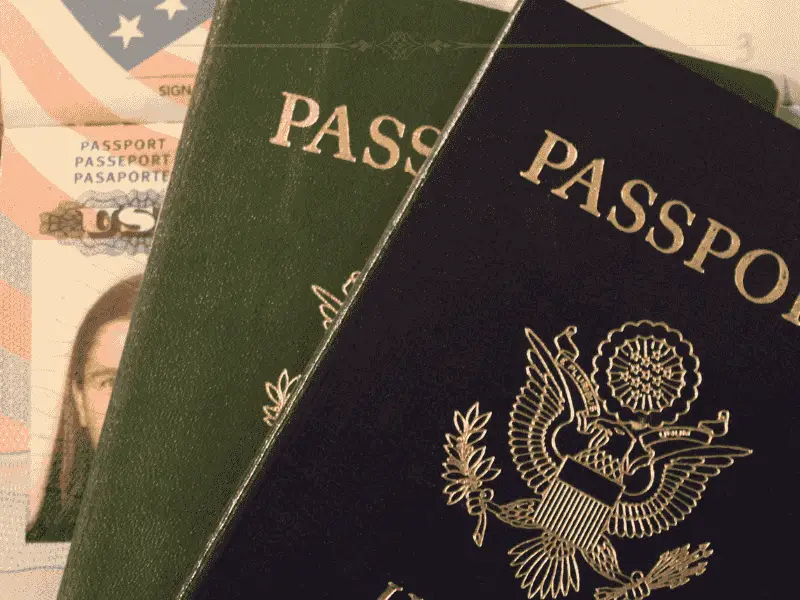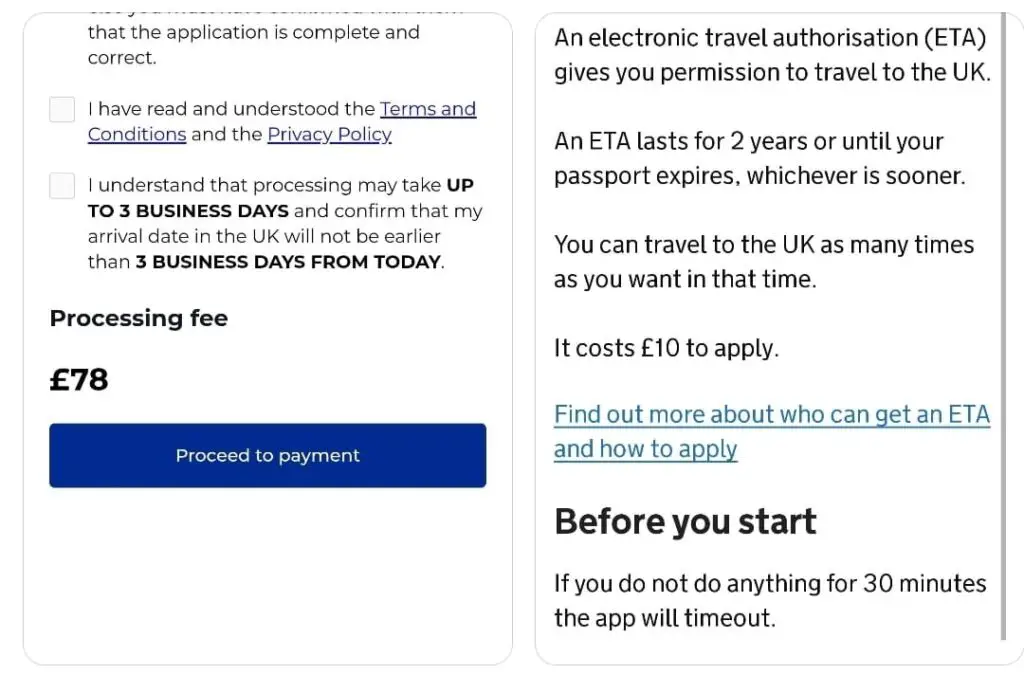International travelers planning to visit the UK face a new challenge beyond the usual visa requirements – avoiding scam websites that charge excessive fees for Electronic Travel Authorization (ETA) applications. A surge in fraudulent platforms mimicking official government services has prompted authorities to issue warnings about unauthorized third-party sites charging up to eight times the official rate.

The Electronic Travel Authorization, a new requirement for international visitors to the United Kingdom, costs £10 through official channels. This digital permit system aims to enhance border security and streamline the entry process for eligible travelers. The official application process is managed exclusively through the UK government’s website.
Digital scammers have rapidly developed sophisticated websites that closely resemble official government platforms. These unauthorized services often appear at the top of search engine results, leading unsuspecting travelers to pay inflated fees, sometimes reaching £78 or more for the same service available directly from the government.
Identifying Official Channels

The UK government exclusively processes ETA applications through websites ending in “.gov.uk”. The official application portal can be accessed directly through the government’s central website, providing a secure and straightforward process for travelers to obtain their authorization.
Fraudulent websites employ various strategies to appear legitimate. They often use official-looking designs, similar web addresses, and professional layouts that mimic government sites. Some even include disclaimers in small print acknowledging they are third-party services, while prominently displaying inflated service fees.
International visitors falling victim to these scams not only pay excessive fees but may also risk delays in their travel authorization process. Some third-party services collect personal information and payment details without guaranteeing successful ETA application submission.
The ETA scam follows a familiar pattern seen across various travel documentation services. Similar schemes target passport renewals, visa applications, and other official travel documents, with unauthorized websites charging premium rates for services freely available or offered at lower costs through official channels.
Transport authorities and consumer protection agencies recommend several steps to avoid falling victim to these schemes. These include bookmarking the official government website, verifying web addresses carefully, and being skeptical of any service charging more than the standard £10 fee.
Beyond excessive charges, using unofficial websites poses additional risks. Submitting personal information and payment details to unauthorized platforms could expose travelers to identity theft and financial fraud.
The proliferation of ETA scams affects travel agencies and tour operators who must now actively guide their clients toward official application channels. Industry associations have begun incorporating ETA application guidance into their standard travel planning protocols.
Search engines and digital advertising platforms face increasing pressure to address the prominence of fraudulent services in their results. While some measures exist to identify and remove misleading advertisements, sophisticated scammers continue to find ways to maintain their visibility.
Law enforcement agencies face challenges in combating these digital scams, particularly when websites operate from overseas jurisdictions. International cooperation becomes crucial in addressing this growing form of travel-related fraud.
Consumer Awareness Strategies
Travel experts recommend specific strategies for identifying legitimate services:
- Verify website URLs carefully
- Check for secure payment systems
- Confirm the exact government fee structure
- Be wary of third-party service providers
- Report suspicious websites to authorities
Similar scams target travel authorization systems in other countries, indicating a worldwide pattern of fraudulent activity in the digital travel documentation sector. International coordination becomes increasingly important in addressing these schemes.
Banking institutions and payment providers have implemented additional security measures to flag potentially fraudulent travel documentation services. However, prevention primarily relies on traveler awareness and vigilance.
This surge in fraudulent ETA application services represents a significant challenge for international travelers and UK authorities alike. While official channels remain secure and straightforward, the proliferation of unauthorized platforms requires increased vigilance from all parties involved in international travel to the United Kingdom.




